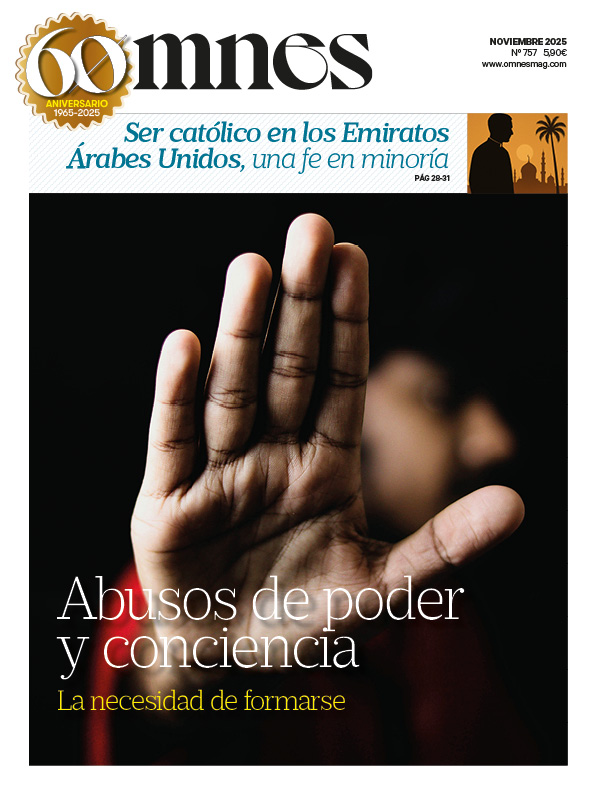At its last session, held last weekend, the German “Synodal Committee” approved the creation of a “Synodal Conference.” Since its inception, the German “Synodal Path” has sought to create a permanent body for joint deliberation and decision-making between bishops and laypeople. Following the Vatican's explicit prohibition on establishing a “Synodal Council” — a figure that does not exist in canon law, as recalled in two letters from the Holy See dated January 16, 2023, and February 16, 2024 — the promoters have changed the name; but the goal remains the same: to institutionalize a stable structure that perpetuates the Synodal Path.
The basic text “Power and Separation of Powers in the Church,” approved by the Synodal Assembly on February 3, 2022, already stated that decisions binding on all German dioceses should be discussed and approved jointly by the German Bishops' Conference (DBK) and the Central Committee of German Catholics (ZdK). The creation of a permanent body was therefore a declared goal from the outset.
Apparent unanimity
The promoters of the “Synodal Conference” interpret the unanimity achieved at the last session of the Synodal Committee as a sign of internal trust and a “mature synodal culture.” However, this unanimity hides the opposition of five German bishops—Cardinal Rainer Woelki (Cologne) and Bishops Gregor Maria Hanke OSB (Eichstätt), Stefan Oster SDB (Passau), and Rudolf Voderholzer (Regensburg)—who refused to join a project that, in their view, would create a body that would be “de facto above” the Bishops' Conference.
The “Synodal Conference” aims to move from deliberation to action after the 2026 assembly. To this end, it attempts to reconcile Roman expectations and reformist aspirations, but leaves decisive questions open: the actual powers of the Synodal Conference, the binding nature of its decisions, and the criteria for participation. Without a nihil obstat Roman, its legitimacy would be seriously compromised.
Episcopal independence called into question
The statutes provide for a stable, joint structure with financial autonomy and the capacity to set its own agenda, evaluate itself, and make decisions collegially. Although the authority of the diocesan bishop is formally affirmed, the proposed system resembles a quasi-parliamentary model that, in practice, binds bishops to decisions made collectively. This contradicts the recent final document of the World Synod, which clearly distinguishes between deliberation (for the whole People of God) and decision-making (the competence of the bishops).
The insistence on unanimity takes on a problematic nuance here. Presented almost as a sign of the Spirit, it runs the risk of becoming moral pressure against those who have reservations. Synodality is reduced to an emotional experience of internal cohesion, rather than discernment in fidelity to the universal Church. Group trust is equated with spiritual legitimacy, overlooking Roman warnings.
The risk is clear: that the new body will interpret its internal unity as confirmation, generating a worrying immunity to criticism. Rome has insisted that a national body with powers not provided for by canon law cannot be created, but the statutes move precisely in that direction, albeit under another name. The claim that “Rome was closely involved” in the drafting seems more like an attempt to exert pressure than a reflection of the actual process.
A synodality different from the Roman one
Five years of the Synodal Path have shown that majorities often impose their agenda without adequately integrating the arguments of minorities. In this context, more decisive than the statutes will be the future internal and electoral regulations of the new body—rules that do not require Roman approval and that will de facto guide its course.
Canon lawyer Heribert Hallermann warns that the statutes contain deliberate ambiguities. Although the phrase “deliberate and decide jointly” has been softened, Article 2 continues to link the two concepts in a way that is incompatible with the World Synod. Furthermore, allowing the Synodal Conference itself to determine its topics and evaluate its functioning opens the door to irregular practices that could become entrenched over time. Hallermann points out that the statutes require recognitio of the Holy See, something ignored in the approved text. He considers it unlikely that Rome will give its approval, as this would mean endorsing a national governing body not provided for by canon law.
Ultimately, Hallermann points out, each bishop must seriously discern the doctrinal and canonical implications before approving the statutes, as it is his duty to safeguard the unity and legality of the Church, even in the face of internal pressures.
Criticism
The lay initiative “New Beginning” (“Neuer Anfang”), critical of the German synodal process from the outset, has published a twelve-point statement calling on the Pope and the Roman authorities to reject the statutes as contrary to the doctrine, constitution, and law of the Church. They point out that institutional cooperation already exists between the German Bishops“ Conference and the Central Committee of German Catholics, and warn of the risk of ecclesial ”over-structuring." What is needed, they say, are not new organizations, but small living circles, diaconal and missionary initiatives, and prayer groups.
They also criticize the parity between bishops, the ZdK, and “other believers,” which they see as a dangerous “parliamentarization” of ecclesiastical government, susceptible to being captured by lobbies and ideologies and obscuring the Gospel, contrary to the warnings of the Vatican and Pope Francis. Furthermore, they accuse the project of exploiting sexual abuse through the concept of “systemic guilt” to promote a reform agenda, concealing personal responsibilities.








